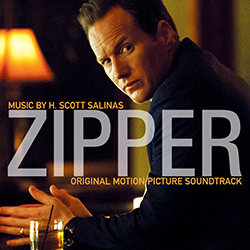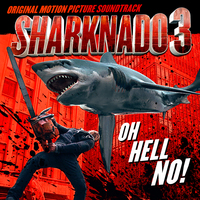 Zipper is a new film directed by Mora Stephens and executive produced by Darren Aronofsky, which tells the story of an ambitious federal prosecutor, who becomes embroiled in an addiction to high end escorts. To create an effective score for the film, the creators turned to renowned composer H. Scott Salinas (‘The Square’, ‘Cartel Land’, ‘Murder in the First’).
Zipper is a new film directed by Mora Stephens and executive produced by Darren Aronofsky, which tells the story of an ambitious federal prosecutor, who becomes embroiled in an addiction to high end escorts. To create an effective score for the film, the creators turned to renowned composer H. Scott Salinas (‘The Square’, ‘Cartel Land’, ‘Murder in the First’).
The film deals with a character that is descending into a dark addiction, so it would seem just that any score that accompanies it would need to show several sides of the same character as they change and develop, as well as doing the usual job of complimenting the imagery, while maintaining a cohesive whole. I have yet to see the film, but as it is connected to Aronofsky, I would imagine there are some quite dark elements and quite a lot of depth to explore.
Reading the notes on the soundtrack before I heard it, there was a description of how the composer, H. Scott Salinas had been involved in the creative process from an early stage, which can be a great advantage, and how he had developed the idea of Cellos representing one side of the main characters psyche, while Violins showed the other, more noble side.
In my mind I imagined that this soundtrack would be quite raw and powerful, with tension and a palpable, visceral sound underpinning the visuals. Unfortunately, once I got into the album, not all of it is like this and in some places the sound is smoother than I imagined; there is far more of an electronic influence to the sound, with some sections sounding more electronic than organic. This isn’t to say that it isn’t amazingly effective, it’s just that it wasn’t quite what I expected and I’m intrigued as to how it plays with the visual.
My own preconceptions aside, the music itself is very well put together, with a real intensity and drama evident from the outset. The electronic manipulation, enhancements and additions lend a power and mystery to the pieces and you can fully imagine the characters moral, personal and professional dilemmas twisting as the album develops.
While there are no clear themes or pieces which would standalone, it is, as ever, important to know what the effect is with the visual and I suspect that this is where the music will truly come alive; this is where the full effect will be felt. I have read some comments elsewhere that stated that they didn’t think general audiences will notice the music, but I think this is missing the point; sometimes the emotional and even physical effect is a combination of the visual and the sound, without one standing out from the other.
While I personally would have liked the score to be in a much more ‘raw’ form, I have to say this does sound like it will complement the film immensely well, giving a tense and moody sensibility to a dark visual.


